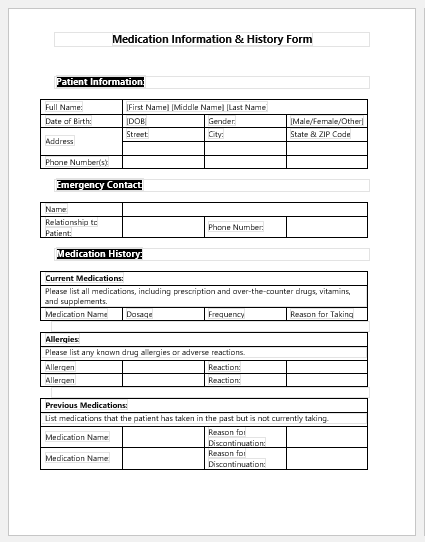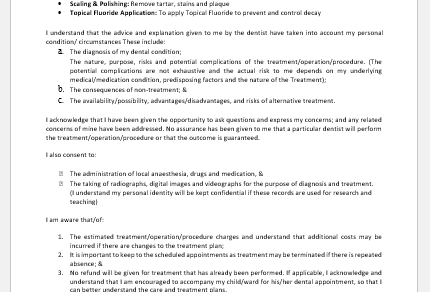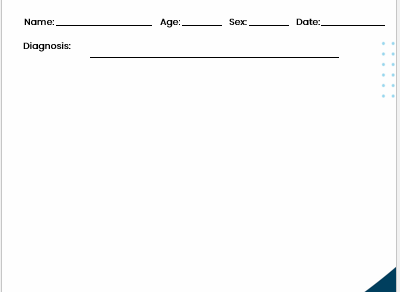Forms are generally used whenever there is a need to collect information about people or things. These forms are designed for individuals, and they are like questionnaires with empty fields. The form gets filled out when the patient fills in those empty fields.
Forms in the field of healthcare have a crucial role to play. They are used in every phase of the treatment, from planning it to making it happen. Since they are pivotal for gathering information from people, they are a great source of massive information for healthcare providers as well as for those who conduct research in this field.
What is a medication information & history form?
Choosing the right type of treatment and deciding on which medication to administer is a very important step in giving treatment to the patient. No doctor can take the risk of giving a treatment to a patient without knowing the medication and history of the patient. Therefore, when a patient visits the hospital for any type of treatment, he is asked to fill out the medication treatment and medical history form.
Sometimes, the patients are asked to fill out the form, and if the patient has visited the same hospital in the past, the history can be elicited from the hospital’s records.
(Template)

The Form File: 38 KB
Why is it important to use the medication information and history form?
It is very common for doctors to have those patients in the queue who have been getting medical treatment from other doctors in the past. Some patients have also been fighting various diseases. The doctor should know what type of medication the patient is currently taking because some medications may not be taken in combination with each other because of intolerance to their chemicals.
Details on the form
These are the details that are taken from the form:
- Name, age, and sex of the patient
- List of medicines the patient has taken in the past or is currently taking
- Name of any disease the patient has suffered from in the past
- Injuries details
- Name of the hospital where the treatment was administered previously
- Signatures of the patient
Possible benefits
There is not a single hospital that does not use the medical history form. There is no concept of giving treatment to a patient without knowing their medication history. The doctor uses the history form to gather information about the patient that he will use while deciding which type of treatment he should be given. Here are the top benefits:
Giving treatment to the patient becomes easy:
Knowing the medical history of the patient makes it easy for the doctor to determine which type of treatment will be more suitable for the patient. The history tells us which treatment the patient got in the past and whether it worked for him or not. The history form also lets the doctor know whether the patient is ready for treatment or not.
For example, if the medical form reveals that the patient is diabetic, the doctor will consider taking further tests before moving ahead with the treatment.
It ensures the safety of the patient:
Patients who are already on medication need to be sure that they let the doctor know about those medications so that the doctor can decide whether he should prescribe a new medicine or the patient should carry on with the older prescription.
Many pills and medicines cannot be taken together as they can have adverse effects on the patient’s health. The life of the patient should not be endangered by initiating the treatment without giving much consideration to the history. Therefore, the safety of the patient is ensured with the use of the history and medication treatment form.
It enables experts to choose the best treatment options:
In many situations, a patient can be easily treated with various treatment methods. However, one method can be better than the other. Choosing the most appropriate method becomes possible when age, sex, previous medical treatments, allergy history, and lots of other things are taken into account.
See also:
- Pain Diary Worksheet Template
- Forms Commonly Used by Old Age Homes
- Medical Treatment Consent Form
- Home Exercise Program Worksheet
- Forms Used for Mental Health Assessment
- Forms Used by Psychologists
- Medical Forms Commonly Used by/for Students
- Assessment Consent Form
- Forms Used by an Anesthesiologist
- Not Fit to Fly Certificate Template
- Home Visit Consent Form for Schools
- Important Forms Commonly Used by Pharmacies
- Important Forms Commonly Used by Dentists
- Forms used in Disease Testing or Diagnostic Laboratories
- Prescription Pad Templates


